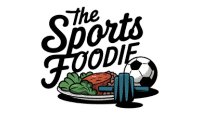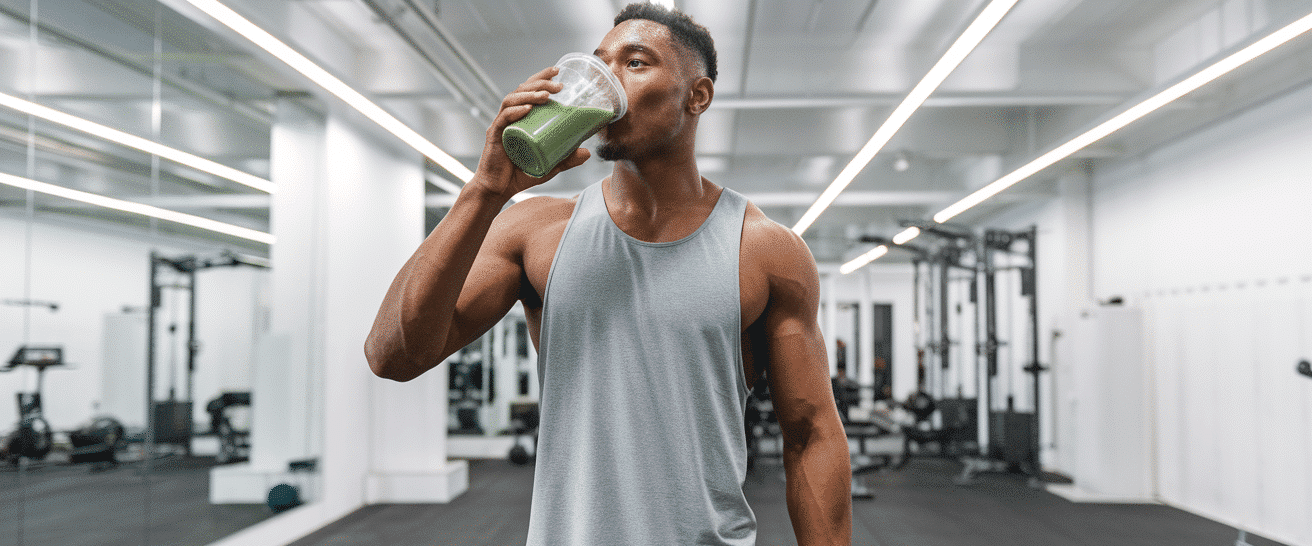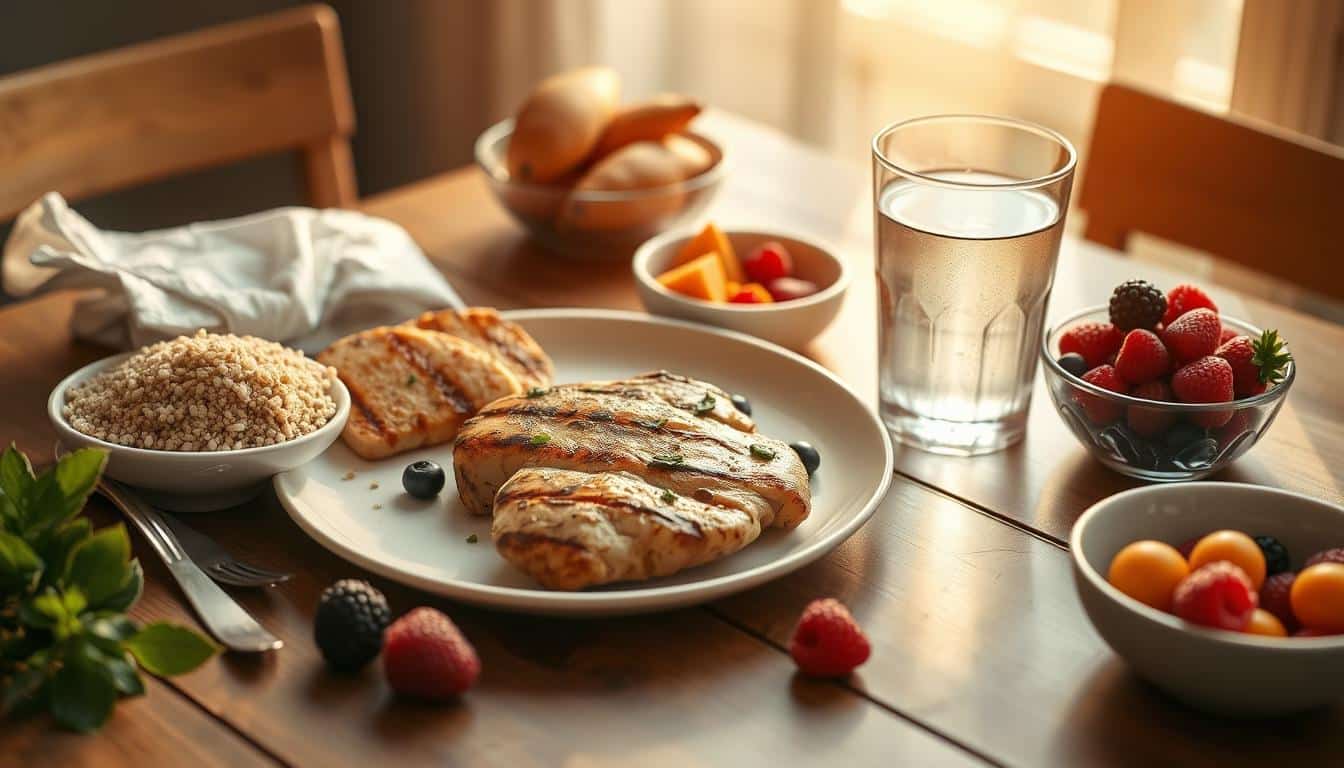Pre-Game Nutrition Basics
Fueling your body right is the foundation of peak performance. What you eat and drink before a game can significantly impact your energy, focus, and recovery. Let’s break down the essentials to help you make smart choices.
Understanding Carbohydrates and Protein
Carbohydrates are your body’s primary fuel source. They provide the energy needed to power through intense activities. Focus on complex carbs like whole grains, fruits, and vegetables. These release energy steadily, keeping you fueled longer.
Lean protein is equally important. It helps repair and build muscle, especially after physical exertion. Sources like chicken, fish, and beans are excellent options. Pairing carbs with protein ensures sustained energy and muscle recovery.
The Role of Hydration
Staying hydrated is crucial for optimal performance. Water is essential, but sports drinks can also help replenish electrolytes lost through sweat. Aim to drink 16-20 ounces of fluid per hour during activity. Start hydrating well before the game to avoid dehydration.
| Nutrient | Role | Best Sources |
|---|---|---|
| Carbohydrates | Primary energy source | Whole grains, fruits, vegetables |
| Lean Protein | Muscle repair and growth | Chicken, fish, beans |
| Hydration | Maintains energy and focus | Water, sports drinks |
Timing is key. Eat a balanced meal 3-4 hours before the game to allow for digestion. Choose familiar, nutrient-rich foods to avoid any surprises. With the right nutrition, you’ll be ready to perform at your best.
Pre-Game Meals for Football Players
The right meal plan can make or break your game-day performance. Eating the right foods helps you stay energized, focused, and ready to give your best. Let’s dive into some meal ideas that combine lean protein and complex carbs to fuel your body effectively.
Start with dishes like grilled chicken with whole wheat pasta or soft tacos filled with lean beef and veggies. These meals provide a perfect balance of nutrients. The carbs give you steady energy, while the protein supports muscle repair and growth.
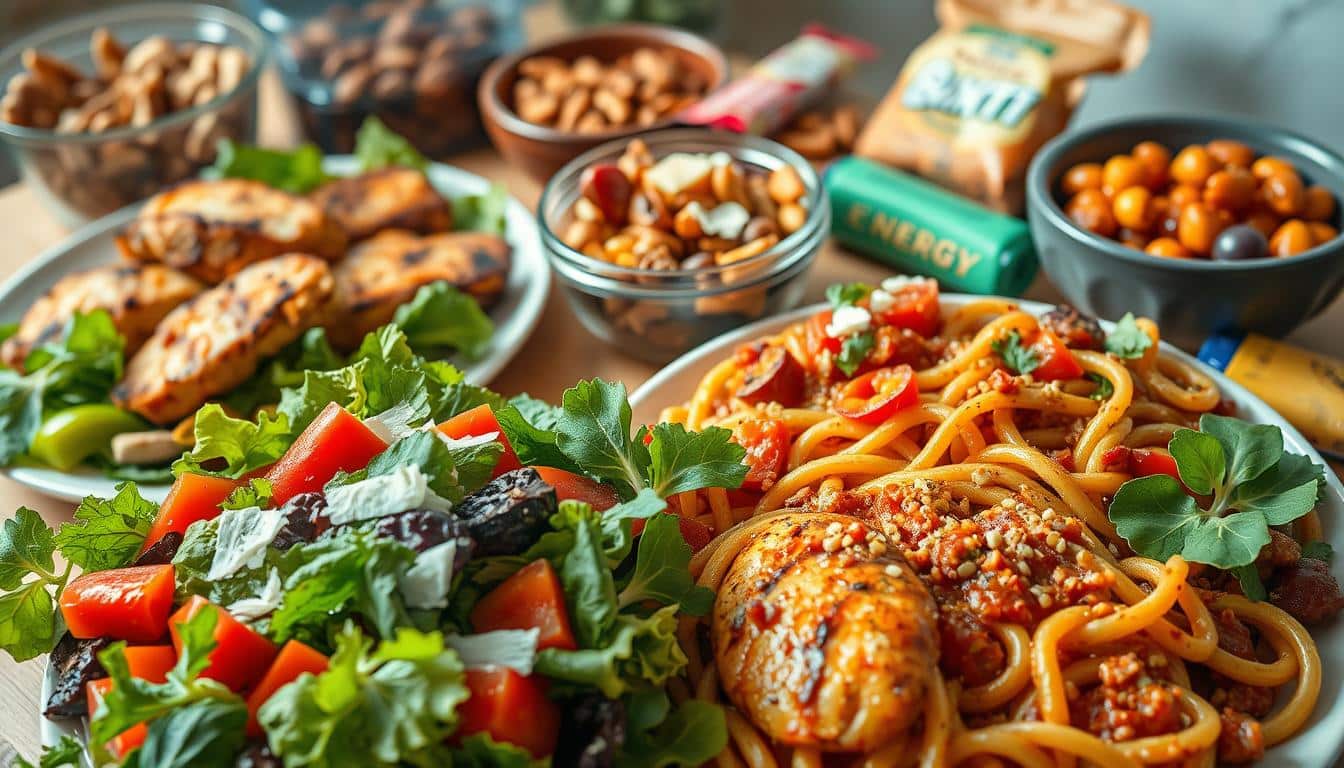
Another great option is a quinoa bowl with roasted vegetables and a side of salmon. This dish is packed with nutrients and easy to prepare ahead of time. For a quick snack, try a banana with almond butter or a small smoothie with Greek yogurt and berries.
These meals are designed to sustain your energy throughout the game. They also help reduce fatigue, so you can perform at your peak. Stick to familiar foods to avoid any digestive issues during the sport.
Here’s a simple plan to follow:
- Eat a balanced meal 3-4 hours before the game.
- Include a mix of carbs, protein, and healthy fats.
- Stay hydrated by drinking water or a sports drink.
Consistency is key. Test these meals during practice to see what works best for you. With the right fuel, you’ll be ready to dominate the field and achieve your best performance.
Timing Your Pre-Game Eating and Hydration
When you eat and drink is just as important as what you consume. Proper timing ensures your body has the energy and hydration it needs to perform at its best. Let’s break down the ideal schedule for fueling up and staying hydrated.
Meal Timing: Night Before and Game Day
Start by eating a balanced meal the night before. This helps top off your energy stores and prepares your body for the next day. Focus on high-carb options like whole grains, pasta, or rice paired with lean protein and colorful vegetables. Avoid heavy, high-fat foods that can slow digestion.
On game day, aim for a meal 3-4 hours before you start. This gives your body enough time to digest and convert food into energy. Include a mix of carbs, protein, and healthy fats. For example, a grilled chicken sandwich on whole wheat bread with a side of fruit works well.
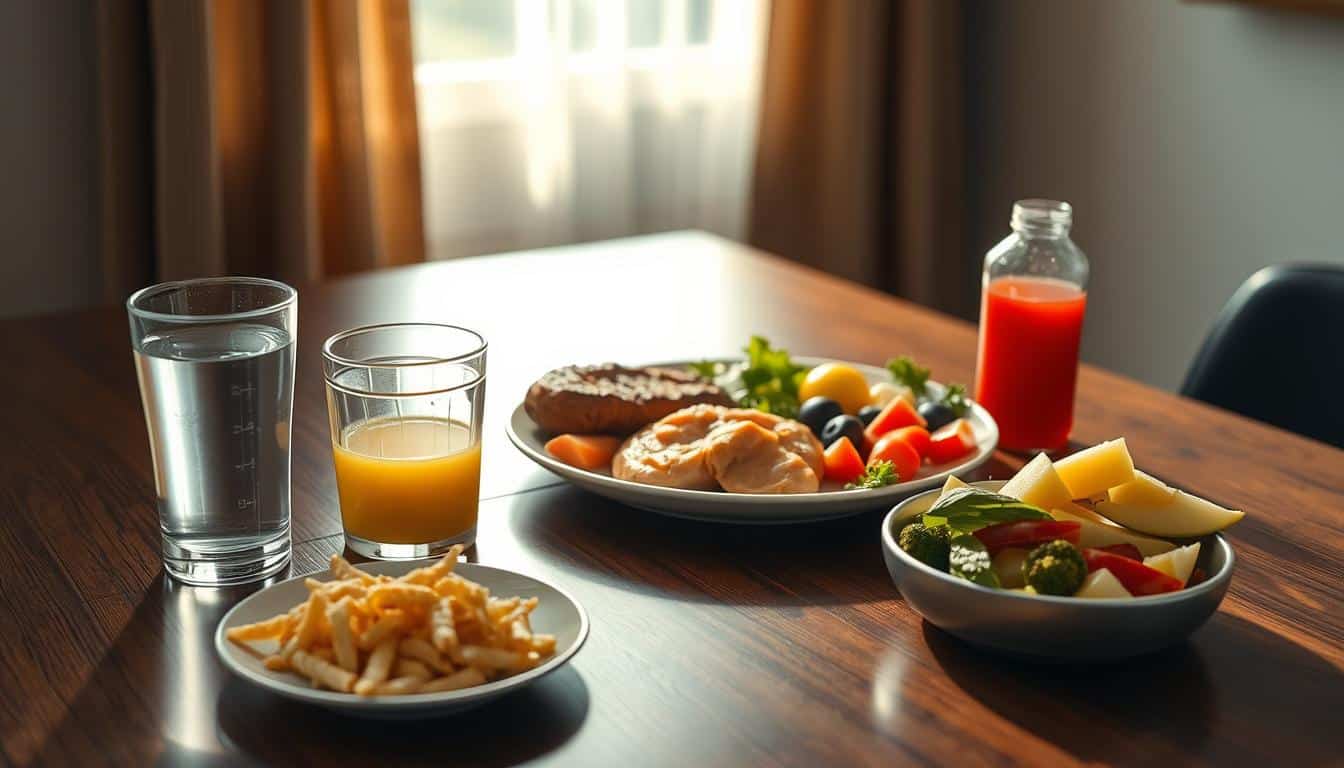
Snack Timing for Energy Boost
About 1 hour before the game, have a small snack to boost your energy. Choose something light and easy to digest, like a banana, a handful of nuts, or a low-fat yogurt. Avoid foods high in fiber or fat, as they can cause stomach discomfort during play.
Hydration is equally important. Drink 16-20 ounces of water or a sports drink 1-2 hours before the game. During the game, sip fluids every 15-20 minutes to stay hydrated and prevent fatigue or injury.
By timing your meals and snacks right, you’ll keep your energy steady and avoid feeling sluggish. Stick to familiar foods and drinks to ensure your body responds well on game day.
Smart Food Choices for Optimal Performance
Making smart food choices can elevate your performance and keep you at your best. The key is to focus on familiar, balanced meals that your body knows and loves. This approach helps you avoid surprises and ensures you’re ready to give your all.
Sticking to foods you’ve tested during training is a game-changer. Trying new options on game day can lead to digestive issues or energy crashes. Instead, rely on trusted favorites like grilled chicken sandwiches or whole-grain dishes. These provide steady energy and keep you feeling great.
Simple, Familiar Foods Over New Options
Familiar foods are your best bet for consistent performance. They’re easy to digest and less likely to cause discomfort. For example, a grilled chicken wrap with veggies and a side of brown rice is a winning combo. It’s packed with nutrients and keeps you fueled throughout the day.
Testing meals during practice helps you find what works best. This way, you can fine-tune your nutrition plan and avoid any surprises on game day. Stick to what you know, and you’ll feel confident and ready to perform.
Low-Fat, Low-Fiber Options
Low-fat, low-fiber meals are easier to digest and keep your energy steady. Avoid heavy, greasy foods that can slow you down. Instead, opt for lean proteins like chicken or turkey paired with simple carbs like rice or potatoes.
These choices help you avoid fatigue and stay focused. They also reduce the risk of stomach issues, so you can perform at your peak. Here’s a quick comparison of familiar vs. new food options:
| Familiar Foods | New Foods |
|---|---|
| Grilled chicken sandwich | Spicy new dish |
| Whole-grain pasta | High-fiber salad |
| Banana with almond butter | Unfamiliar protein bar |
By choosing smart, familiar meals, you’ll set yourself up for success. Focus on balance, simplicity, and what works best for your body. With the right nutrition, you’ll feel strong, energized, and ready to tackle any challenge.
Tips for Managing Digestion and Avoiding Common Pitfalls
Managing your digestion effectively can make a huge difference in your performance. Avoiding discomfort ensures you stay focused and energized. Here’s how to test foods and adjust your meals for optimal results.
Testing Foods Ahead of Time
Always test new foods during training, not on game day. This helps you identify what works best for your body. Start with small portions to see how your stomach handles them. Monitor your energy levels and digestion during exercise to make adjustments.
Include a mix of vegetables and lean proteins on your plate. These support muscle recovery and keep your energy steady. For hydration, sip water or a sport drink from a cup to stay refreshed and avoid dehydration.
Here’s a simple plan to follow:
- Try new foods during practice to check for digestive issues.
- Monitor your body’s response during training.
- Adjust meals based on how you feel.
- Stick to familiar foods on game day.
By testing and adjusting, you’ll find the perfect balance for your body. This ensures you’re ready to perform at your best without any surprises.
Practical Recipes and Sample Menus
Creating a balanced menu doesn’t have to be complicated—here’s how to make it work for you. With a few simple recipes, you can fuel your body and stay energized throughout the day. Let’s dive into some easy-to-make meals and snacks that are perfect for active individuals.
Balanced Meal Examples
Start with a rice bowl packed with grilled chicken, black beans, and steamed veggies. This combo provides a mix of carbs, protein, and fiber to keep you full and energized. Another great option is whole-grain pasta with marinara sauce and a side of roasted vegetables.
For a quick meal, try a turkey and avocado sandwich on whole-grain bread. Add a handful of baby carrots or a small apple for extra nutrients. These meals are simple, familiar, and designed to support your active lifestyle.
Hydration and Snack Ideas
Staying hydrated is key to maintaining energy. Drink a glass of milk or a light sports drink to replenish fluids and electrolytes. For snacks, grab a banana with peanut butter or a granola bar for a quick energy boost.
Here’s a simple plan to follow:
- Prepare meals ahead of time to save effort and ensure consistency.
- Include a mix of carbs, protein, and healthy fats in every meal.
- Stay hydrated by sipping water or milk throughout the day.
These recipes and tips are designed to be easy, familiar, and effective. By sticking to what works, you’ll feel confident and ready to tackle any challenge.
Conclusion
Proper nutrition and hydration are game-changers for staying strong and focused. Planning your meals and snacks carefully ensures you’re ready for any competition. Timing is key—eat balanced meals like pasta with turkey or a pretzel snack to keep your energy steady.
Hydration is just as important. Drink plenty of water or a sports drink to stay refreshed during the game. Simple steps like these can make a big difference in your performance.
Stick to familiar, low-fat options like a turkey sandwich on whole-grain bread. These choices help avoid discomfort and keep you at your best. Tested recipes, like a bar with nuts and dried fruit, are easy to replicate and effective.
By following these tips, you’ll feel confident and ready to tackle any challenge. Stay strong, stay hydrated, and keep fueling your body for success!
